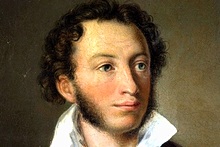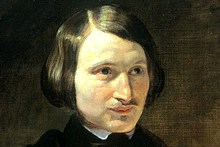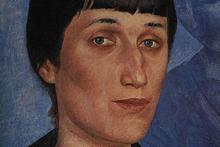Literary lives: St. Petersburg's poets and authors
In its comparatively brief history, St. Petersburg has produced more literary masterpieces than probably any other city in the world. Moreover, the city itself has been far more than just an inspiration or setting for literature, becoming a central theme - a character, even - in some of the greatest works in Russian literature.
Alexander Puhskin and Nikolay Gogol, the first geniuses of Russian letters, both had a fraught and ambiguous relationship with St. Petersburg, but provided indelibly powerful images of the city's architecture, atmosphere and inhabitants. Their literary heirs continued to explore and expand on the themes they established, mapping the city's streets and developing its rich iconography. In turn, St. Petersburg repays the honour by commemorating its greatest authors and poets in a scores of monuments throughout the city, as well as in the names of its streets and institutions.
Russia's greatest poet was educated at the Imperial Lyceum in Tsarskoye Selo and returned to St. Petersburg for the final years of his life. St. Petersburg is the setting for some of his greatest works, including his novel in verse Eugene Onegin, and his name is honored in the names of numerous institutions and addresses.
One of world literature's most unique and original voices, Nikolay Gogol exploited his rural Ukrainian background to achieve his initial literary fame, but then turned his attention to the social and political life of St. Petersburg, providing some of the most indelible and disturbing literary images of the city in a series of brilliant short stories.
When it comes to international literary fame, there is no doubt that Fyodor Dostoevsky is St. Petersburg's greatest export. His bleak, harrowing depictions of poverty and spiritual torment reflect his own harsh and difficult life, but also provide an extraordinarily complete and at times even affectionate portrait of the city and its inhabitants.
Probably the greatest poet of Russian literature's Silver Age at the turn of the 20th century, Alexander Blok was a native of St. Petersburg for whose verse the city was a constant backdrop, by turns heartbreakingly romantic and alienatingly sinister. His inability to reconcile himself with the aftermath of the October Revolution made him one of the earliest cultural victims of the Soviet state.
The first great female voice of Russian literature, Anna Akhmatova was an exceptionally talented poet who went from being one of the most glamorous figures of the pre-Revolutionary Silver Age, renowned for her exceptional beauty and a string of turbulent affairs as much as for her poetry, to become the unflinching witness of the darkest hours of Petersburg's grim 20th century history.
Vladimir Nabokov left St. Petersburg at the age of 18, never to return, spending the rest of his life in Western Europe and the USA, and becoming one of the greatest writers of English prose in the 20th century. His exceptional memory allowed him to continually revisit his childhood, however, and his work is infused with an exquisitely poignant longing for the country and city of his birth.
Forced to emigrate from the Soviet Union in 1972, Joseph Brodsky was an immensely talented lyric poet who became a naturalized American and a Nobel Laureate, but remained the preeminent representative of Leningrad's "underground" culture, maintaining the aesthetic and cultural traditions of the city's pre-Revolutionary liberal intelligentsia.








